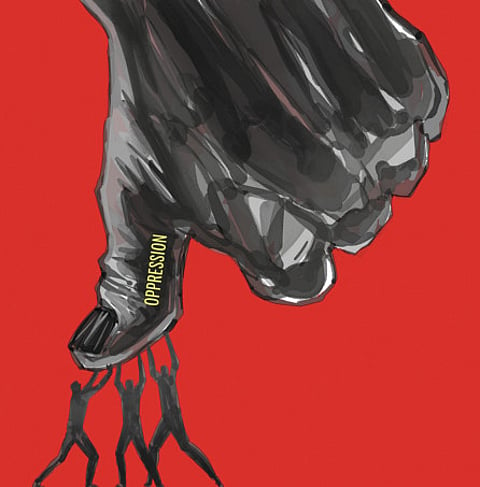When students define national mood
The recent university elections in Palestine reveal that when a leadership is not popular with its people, there is clearly a breakdown in the social contract between the ruler and the ruled

The traditional role that elections play on a university campus for student councils is seen in the academic world as of paramount significance: It affords students the opportunity to learn leadership skills and it grooms them for the real world that they soon will find themselves assimilated in.
Beyond that domain, the results of these elections hardly ever warrant a news report in a national newspaper, let alone an article on an op-ed page — unless we are talking about campuses in Palestine, or more specifically in this case, the nine major universities in the West Bank, where such elections were held late last month that appear to have elicited national and international attention. The outcome of these elections, effectively a contest that pitted Hamas against Fatah candidates, is by now well known: Fatah candidates were trounced.
So what is the big deal? Why the brouhaha?
To start with, there has been no national balloting, for the presidency or the legislature, held in Palestine since 1996, when a Hamas government won handily the national elections, only to find itself ousted soon after that and Mahmoud Abbas, who is now serving his 11th year in office, was re-installed as President of the Palestine National Authority. The Palestinian press was since then muzzled and the public debate stifled. How does one then gauge the national mood?
Well, do not underestimate the role that engaged students, in a society in struggle for social justice and freedom, or a society in confrontation with a foreign occupation and its racist-in-chief, have historically played as a barometer of that mood. As a case in point, consider how student movements in France were able to change the social order as early as the 13 century, chiefly over town and gown issues, and as late as 1968, during “les evenements de 1968” (the events of 1968) that culminated in the toppling of the Charles de Gaulle government.
Or in the US as early as the 1930s, when the American Youth Congress lobbied on Capitol Hill against war and racial discrimination, and as late as 1970, when the largest student strike in American history was held in May and June that year in response to the Kent State killings and the American invasion of Cambodia, with four million students participating. Elsewhere around the world, all the way from Indonesia to apartheid South Africa, and from China to Lebanon, students were behind important acts of resistance. And lest we forget, the Palestinian student movement was the vanguard of the intifada in late 1987.
So the recent student elections are telling us: The national mood has shifted dramatically, if not in favour of Hamas, then certainly in opposition to Fatah. In other words, and put less delicately, students cast their votes that way not because they loved Hamas, but because they hated Fatah — or the crass nepotism, sense of entitlement and serial decadence that the group’s leaders have openly flaunted all these years in power.
When a leadership is not popular with (forget reviled by) its people, there is clearly a breakdown in the social contract between the ruler and the ruled. And when that happens, manifold processes of frustration set in that secrete a poison in the blood of the bloody politic, coupled with a cynical type of rebelliousness that marks a perpetual alienation from power, a rebelliousness that, unlike the elan of an intifada, does not liberate by “shaking off” the grime of the status quo.
The people of Palestine, save for those fortunate enough to be “connected”, are today hemmed in on one side by a clueless leadership unable to find for its citizens a way out or around their national malaise, and on the other by an oppressive occupation that represents, in its practices, one of the greatest injustices in modern history. You don’t understand how oppressive is oppressive until you have lived with that occupation’s boot perpetually stamped on your face.
And when the fire next time, as James Baldwin would have put it, comes — the lashing out of the choked psyche struggling to “get air” — that fire will see to it that the confident pivot of what constitutes “facts on the ground” in Palestine will be irreparably broken.
Are these little elections, in these little campuses in the West Bank telling us all about Palestinians? They do. Apart from political graffiti on walls and ballot boxes in schools — the only two outlets for free expression in Palestine — there is nowhere else to go in order to gauge Palestine’s national mood. And that, sadly, is the stage — though not by any means the terminus — at which this costly, century-old struggle finds itself today.
Fawaz Turki is a journalist, lecturer and author based in Washington. He is the author of The Disinherited: Journal of a Palestinian Exile.


